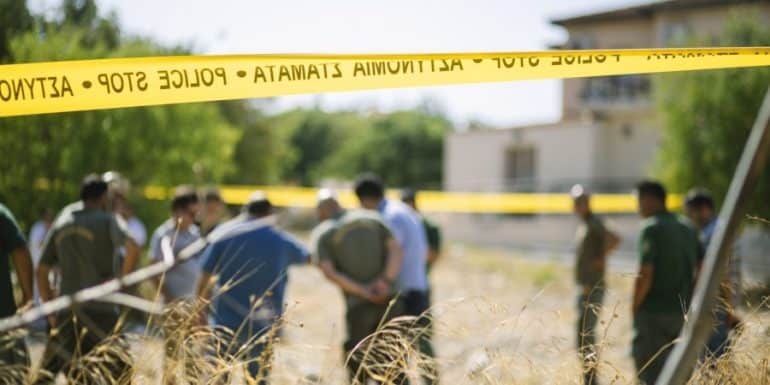An out-of-court fine of 21.000 euros for killing wild birds using poisoned baits was issued a few days ago by the prosecuting authorities.
According to BirdLife Cyprus, the imposition of a penalty is a major step forward that could prevent similar illegal actions that have a devastating impact on Cyprus' biodiversity.
The out-of-court fine is based on offenses that appear to have taken place in December 2021, where three birds of prey - two Sparrowhawks and one Crested Crested - were found dead in an area of Dieronas community in Limassol province. The identification of the above birds was made through the signals emitted by the satellite transmitter carried by one of the two Spizaetes and was the reason for the mobilization of the Game and Fauna Service and the investigation that followed in the area in collaboration with the Police.
During the investigation, the dead birds were located on a property, as well as other evidence, which after further investigation and scientific analysis was linked to a specific person who was served extrajudicial for the offense of killing endangered wild birds by using poison and the offense of intentional killing and/or capturing a protected wild bird. The necropsy and related toxicological analyzes on the dead birds showed that their death was due to the highly toxic and banned substance carbofuran.
The suspect was fined €21.000 out of court for multiple offences, based on the provisions of the Protection and Management of Wild Birds and Game Law of 2003 (L. 152(I)/2003). In case of non-payment of the out-of-court fee, the suspect will be brought before a court. According to the provisions of the above legislation, the court can impose a prison sentence of up to 3 years or a fine of up to €20.000 or a combination of these, for each offense separately!
It is the first time in Cyprus that the crime of using poisoned baits and killing wild birds with the use of poison has been documented. The law provides for particularly severe penalties for killing an endangered species, such as the Spitz Eagle in this case. The prompt mobilization and coordination between the competent authorities to thoroughly investigate the case, including the Police, the Game and Wildlife Service, the State Chemistry General, the Veterinary Services and the Department of Agriculture, played a decisive role. Such results are achieved when targeted efforts are made by multiple stakeholders to develop their skills and knowledge in the forensic investigation of wildlife crimes through participation in the Wildlife Crime Academy, a learning platform using best practices from Spain.
Melpo Apostolidou, Program Coordinator at BirdLife Cyprus, said that, "the culmination of everyone's efforts on a specific suspect marks a milestone for the Cypriot data and the imposition of a penalty is a positive development in the intensive efforts made by all involved to combat placing poisoned baits in the countryside. We believe that Cyprus is now at the ripe stage to follow the example of other European countries and invest even more in efforts to prevent and combat the illegal phenomenon of wildlife poisoning. As an example, I mention that in 2019, in Spain, three persons were sentenced to 2 years and 8 months in prison and ordered to pay compensation of €67.538 for the restoration of the damage they caused."
Placing poisoned baits in the countryside is a wildlife crime that has driven iconic bird species such as the vulture to the brink of extinction in Cyprus. Indicatively, it is noted that, since 2005, 31 vultures have been poisoned, leaving Cyprus today with only 9 vultures. This population is strengthened by the importation of birds from Spain under the "Life with Vultures" programme.
Finally, it is pointed out that all cases of poisoning must be thoroughly investigated in order to identify the suspects and prosecute them. To this end, the public is requested to assist in this effort by reporting and reporting incidents of this type of wildlife crime to the Game and Wildlife Service's Poisoned Bait Detection Teams on 99267916 or 99255086 and the local police station.
